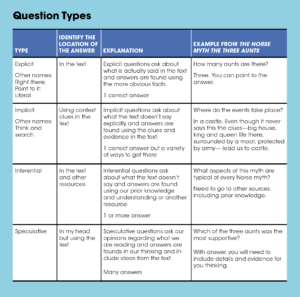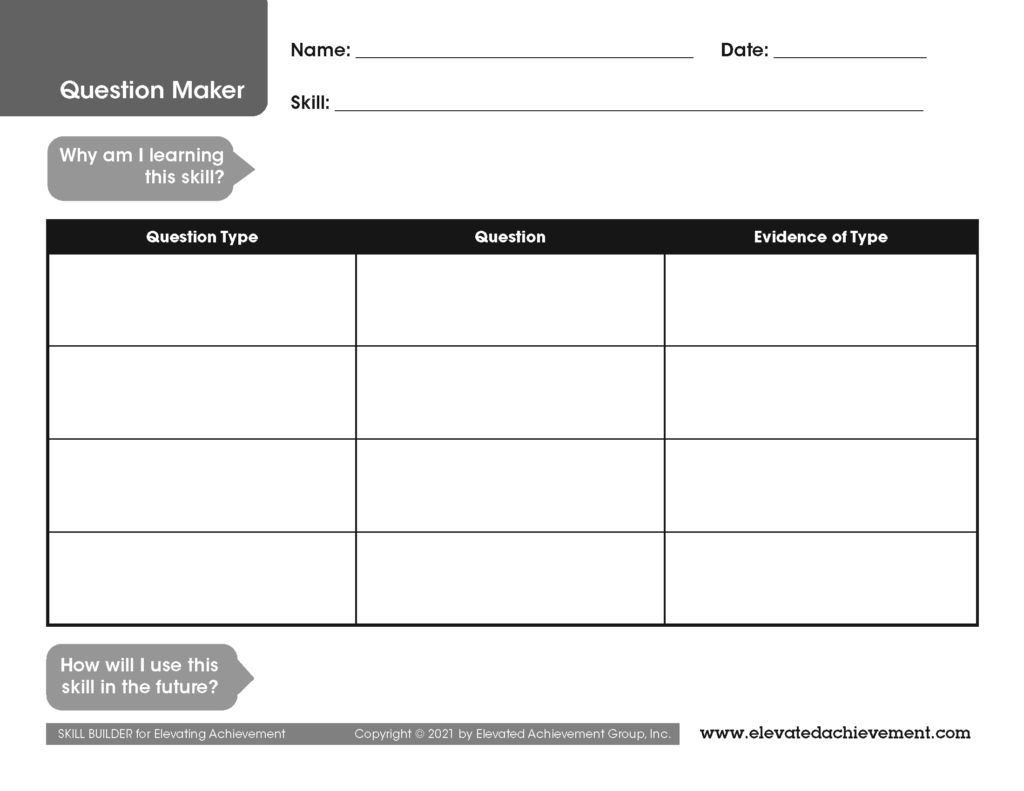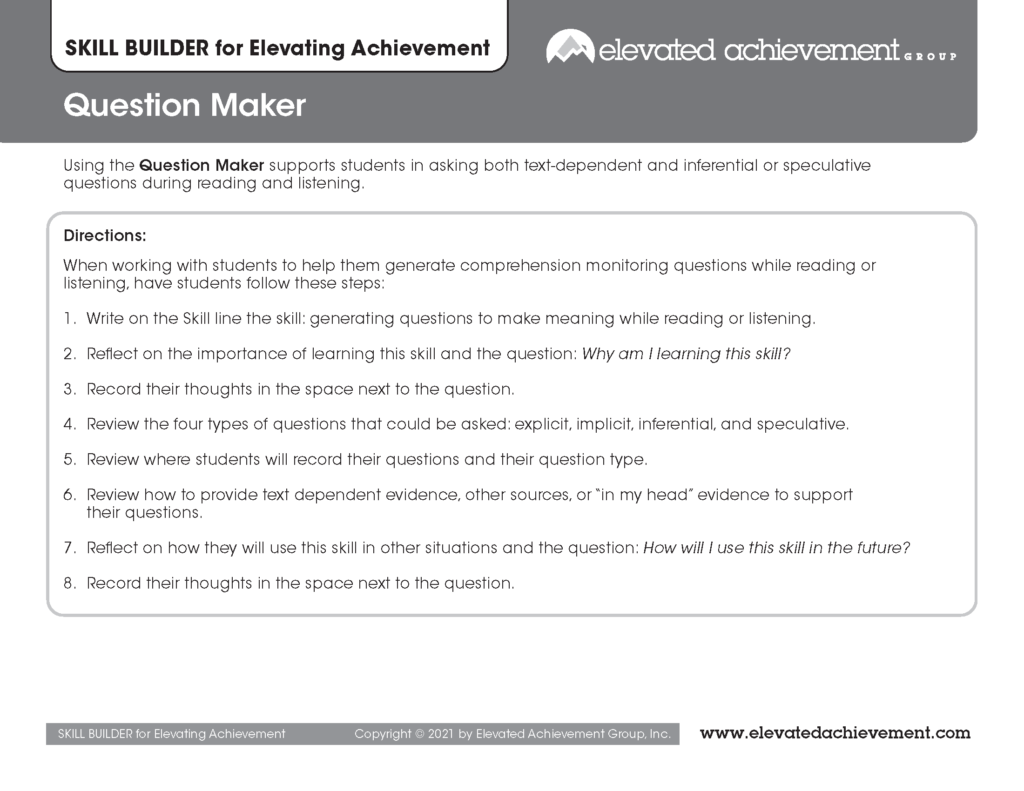Share this article.
Deep learning—of anything—requires strong reading comprehension skills. One of the most effective ways to ensure accurate reading comprehension is through the skill of questioning. Asking and answering questions helps a reader know if they really understand the text.
Research bears this out.
“Hervey (2006) tells us questioning is the central most important strategy for comprehension because when you ask a question, you seek an answer and this will lead to another question and so on. This is what keeps the reading going. This is what enables the reader to interact with the text in order to extract meaning, express opinions and discover the underlying values of the author’s intent. (The University of Melbourne in partnership with Catholic Education Office Melbourne, 2012)”
What Does It Mean to Be a Questioner of Text?
For our students to be successful readers they must take ownership of their reading and of the reading comprehension skill of questioning. But ownership for students needs to be more than just doing the skill—it is recognizing the importance of the thinking behind the questioning and turning themselves into a questioner of text.
In other words, students must move from just questioning to understanding where to find answers to owning the role of questioner whenever they are accessing information from the text.
 A questioner thinks like this, “When I read, I need to question the text. I need to ask and answer some questions. I can pretend I am the teacher and am checking to see if I understand the most important points. I ask explicit questions—the answers are easy to find and right in the passage. I ask implicit questions—the answers aren’t so obvious and take thinking. I can ask questions of my classmates, my friends, my family, or myself. I make sure I know what the author is telling me before I take my notes. Asking and answering questions helps me know if I am really understanding what I am reading.”
A questioner thinks like this, “When I read, I need to question the text. I need to ask and answer some questions. I can pretend I am the teacher and am checking to see if I understand the most important points. I ask explicit questions—the answers are easy to find and right in the passage. I ask implicit questions—the answers aren’t so obvious and take thinking. I can ask questions of my classmates, my friends, my family, or myself. I make sure I know what the author is telling me before I take my notes. Asking and answering questions helps me know if I am really understanding what I am reading.”
How Can Your Students Become Questioners?
Teaching students to become questioners starts with introducing them to the types of questions that help them dive deeper into the reading.
One way to help students practice the role of questioner is to use the following graphic organizer as a tool for building this skill.
Here are the directions you can use with your students.
Click here to download this Skill Builder and its directions.
So, Why Develop Questioners of Text?
 Comprehension is stronger when students have an opportunity to question what they are reading and talk about it. Talking about the reading is stronger when students are able to not only ask questions, but to also clarify ideas, restate the facts, and share what they think they will be reading next. The ability to effectively question, clarify, summarize, and predict is stronger when readers are explicitly taught each of these skills. That’s Reciprocal Teaching, and it is an instructional strategy that not only promotes deep reading, but also student ownership of learning.
Comprehension is stronger when students have an opportunity to question what they are reading and talk about it. Talking about the reading is stronger when students are able to not only ask questions, but to also clarify ideas, restate the facts, and share what they think they will be reading next. The ability to effectively question, clarify, summarize, and predict is stronger when readers are explicitly taught each of these skills. That’s Reciprocal Teaching, and it is an instructional strategy that not only promotes deep reading, but also student ownership of learning.
Continue the Learning
Check out these articles and resources to continue your learning about this topic…
The Learning Brief
In this article you learned…
- Why deep learning requires deep reading.
- To ensure accurate reading comprehension, students must move from just questioning to understanding where to find answers to owning the role of questioner whenever they are accessing information from the text.
- Generating questions for meaning is a reading skill that can and should be taught.
Can you imagine building an environment full of motivated, engaged, and eager students who own their learning?
We can.




